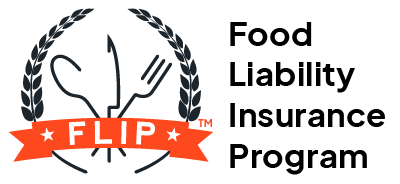With its rich culinary culture and growing food scene, Wisconsin is a great place to get your dream rolling. Starting a food truck in Wisconsin involves complying with state and local laws, acquiring licenses and permits, and getting food truck insurance.
Understand Food Truck Requirements in Wisconsin
You’ll need to meet a few basic requirements before applying for food truck permits and licenses, including:
- Business name: Think of your food truck name like a catchy song title: unique, easy to remember, and something people tell their friends to check out.
- Business classification: How you classify your business affects everything from filing taxes to legal liability. Food trucks are typically sole proprietorships, partnerships, or limited liability companies (LLCs).
- Employer identification number (EIN): If you hire employees or have more than one business owner, register with the Internal Revenue Service (IRS) to receive your EIN.
- Certificate of Insurance (COI): A COI is your proof of insurance and is crucial when participating in food truck festivals in Wisconsin.
- Business plan: An in-depth business strategy lays the foundation for your company and is necessary for securing loans and grants.
- Plan Review Application: Local health departments require Wisconsin food truck owners to submit a plan review for both their food trucks and service bases.
Pro Tip: Wisconsin One Stop Registration Portal provides a detailed breakdown of how to register and open your business.
Food Truck Licenses in Wisconsin
Once you meet the basic requirements, you can apply for the licenses and permits you need to run your business.
Keep in mind that while some licenses are state-issued, most fall under the jurisdiction of local cities and counties. Always contact local government offices for the most up-to-date requirements.
Business License
- Recognizes your food truck company in the state of Wisconsin.
- Cost: Varies by city/county
- Where to get it: Your local government offices
Mobile Food Unit License
- A state-issued requirement for Wisconsin food trucks.
- Cost: $105–$550
- Where to get it: Wisconsin Department of Agriculture, Trade and Consumer Protection (DATCP)
Public Health Permit
- Certifies that your food truck meets all Wisconsin food code regulations.
- Cost: Varies by city/county
- Where to get it: Local health department
Seller's Permit
- Enables you to collect sales tax through your mobile food business.
- Cost: Free
- Where to get it: Wisconsin Department of Revenue
Follow Wisconsin Food Truck Laws
Wisconsin has several food truck laws to ensure your business operates safely and successfully. Violating any of these could result in fines, license suspensions, and even the closure of your food truck.
Some of the most important laws to understand include:
- Service Base: Food truck laws in Wisconsin require business owners to have a mobile service base for food prep, storage, and wastewater disposal. Some cities may require a separate license specifically for your service base.
- Fire code compliance: Wisconsin food truck owners must comply with all state and local fire codes, safety laws, and fire inspections.
- Zoning restrictions: Whether it’s Madison or Milwaukee, each city in Wisconsin has its own laws regarding where you can park. Always check local zoning regulations before opening for business.
- Health inspections: Food trucks in Wisconsin are subject to regular health inspections from state and local health departments.
Pro Tip: Use our health inspection checklist to make sure your truck is prepared and ready to pass!
Get Wisconsin Food Truck Insurance
The average food truck claim costs $6,271, making insurance a must-have when starting a food truck in Wisconsin.
Imagine you’re serving your specialty at a Kenosha food truck rally when a customer trips over your generator cord. Or the wind picks up and blows your awning into a nearby storefront. Either one of these scenarios can lead to a significant financial burden.
From hospital bills to property damage, Wisconsin food business insurance from Food Liability Insurance Program (FLIP) can help mitigate some or all of the costs resulting from such claims.

Learn the Cost of Starting a Food Truck in Wisconsin
The U.S. Chamber of Commerce estimates that the average food truck business owner spends more than $28,000 per year to meet the necessary legal requirements.
Other expenses associated with starting a food truck in Wisconsin include:
- Food truck
- New: $80,000–$150,000
- Used: $40,000–$80,000
- Cooking equipment
- Grill/griddle: $2,500–$3,500
- Deep fryer: $1,000–$2,000
- Oven: $1,500–$4,000
- Refrigeration
- Refrigerator/freezer: $2,000–$3,500
- Prep table: $1,200–$2,500
- Safety and sanitation
- Commercial sink: $1,000–$3,000
- Handwashing sink: $300–$600
- Fire suppression system: $2,000–$4,000
- Technology
- Point of Sale (POS) system: $1,000–$2,500
- Inventory management software: $30–$150 per month
Pro Tip: Ensure you’re breaking even with a smart menu pricing strategy that covers your expenses and earns a profit!
Sell at Wisconsin Food Truck Festivals
Wisconsin fairs and festivals offer food truck owners an exciting opportunity to reach more customers and connect with other vendors.
If you’re looking to join Wisconsin’s growing food truck scene, consider these popular events:
- Franksville Food Truck Festival
- Wisconsin State Fair
- Taste of Madison
- Friends of Lakeside Park Food Truck Festival
Pro Tip: Competition for festival spots can be fierce, especially during the peak spring and summer months. Learn essential tips for getting your food truck into festivals and increasing your chances of getting accepted!
FAQs About Starting a Food Truck in Wisconsin
Are There Specific Zoning Regulations for Food Trucks in Wisconsin?
Yes, though most restrictions vary by city. Some of the most common regulations fall under the following categories:
- Hours of operation: Food trucks can only operate during designated business hours
- Parking: Some cities, such as Milwaukee, have specific guidelines that restrict or altogether block parking food trucks in certain areas
- Proximity to other businesses: Most cities in Wisconsin have laws regarding how close you can park to restaurants and stores.
What Are the Fire Safety Requirements for Food Trucks in Wisconsin?
Your food truck must meet all state and local Wisconsin fire safety requirements, including:
- One ABC fire extinguisher for general fire hazards unrelated to cooking
- One Class K extinguisher for food trucks cooking with oils and grease
- One carbon monoxide detector (unless your truck does not use fossil fuels)
- Any propane tanks secured to the rear of your truck must be at least 30’’ off the ground

Clint Hale
Ohio-based copywriter Clint Hale leverages his experience as an enthusiast of regional eateries and fast-casual dining. He also holds a B.A. in Communication Studies from Kent State University. Before working for FLIP, he was a Senior Copywriter at an SEO marketing agency. Fully trained on the ins and outs of Food Liability Insurance Program, Clint writes to bridge the gap between food and beverage entrepreneurs and the policies that protect their businesses.
Ohio-based copywriter Clint Hale leverages his experience as an enthusiast of regional eateries and fast-casual dining. He also holds a B.A. in Communication Studies from Kent State University. Before working for FLIP, he was a Senior Copywriter at an SEO marketing agency. Fully trained on the ins and outs of Food Liability Insurance Program, Clint writes to bridge the gap between food and beverage entrepreneurs and the policies that protect their businesses.

